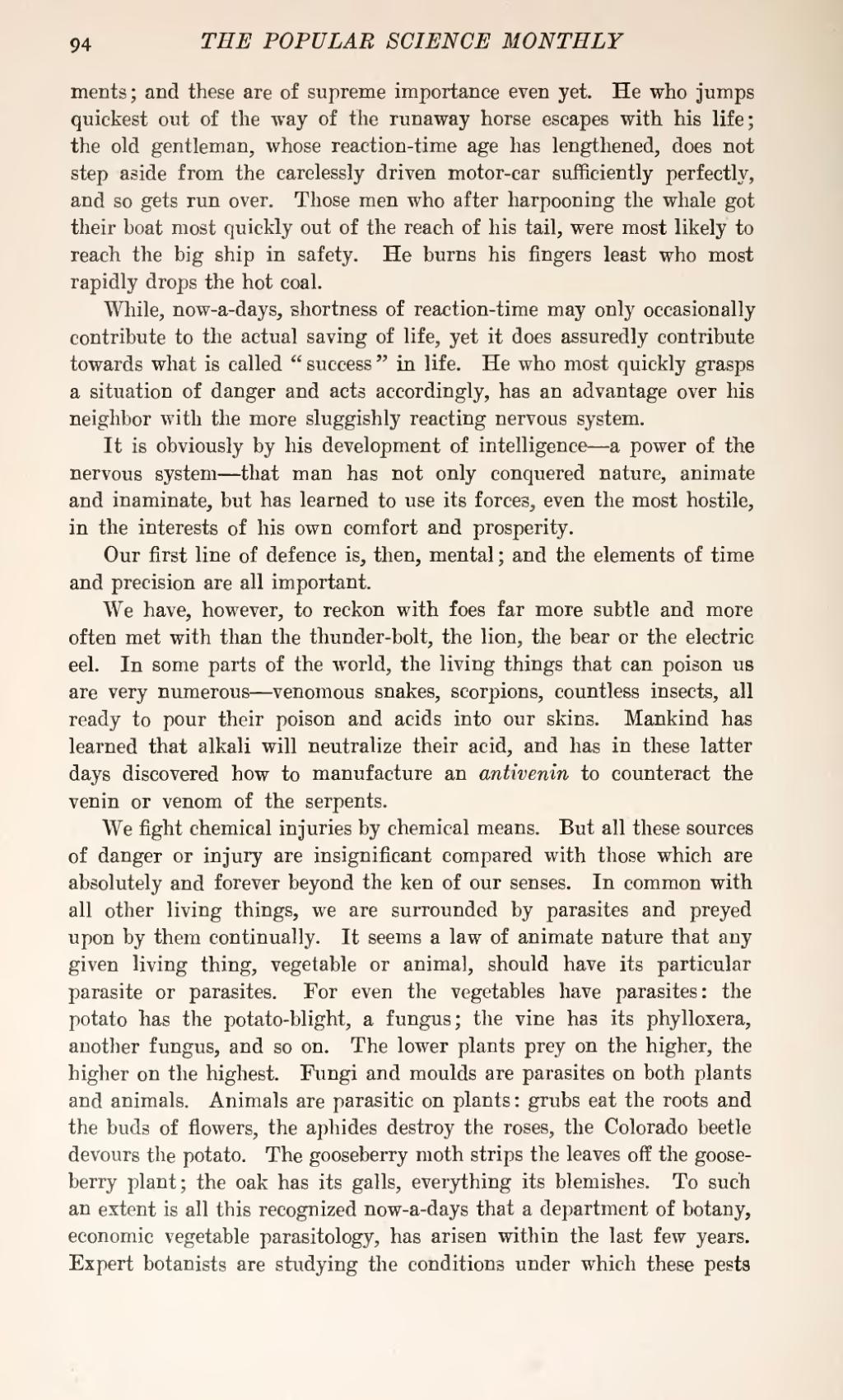ments; and these are of supreme importance even yet. He who jumps quickest out of the way of the runaway horse escapes with his life; the old gentleman, whose reaction-time age has lengthened, does not step aside from the carelessly driven motor-car sufficiently perfectly, and so gets run over. Those men who after harpooning the whale got their boat most quickly out of the reach of his tail, were most likely to reach the big ship in safety. He burns his fingers least who most rapidly drops the hot coal.
While, now-a-days, shortness of reaction-time may only occasionally contribute to the actual saving of life, yet it does assuredly contribute towards what is called "success" in life. He who most quickly grasps a situation of danger and acts accordingly, has an advantage over his neighbor with the more sluggishly reacting nervous system.
It is obviously by his development of intelligence—a power of the nervous system—that man has not only conquered nature, animate and inaminate, but has learned to use its forces, even the most hostile, in the interests of his own comfort and prosperity.
Our first line of defence is, then, mental; and the elements of time and precision are all important.
We have, however, to reckon with foes far more subtle and more often met with than the thunder-bolt, the lion, the bear or the electric eel. In some parts of the world, the living things that can poison us are very numerous—venomous snakes, scorpions, countless insects, all ready to pour their poison and acids into our skins. Mankind has learned that alkali will neutralize their acid, and has in these latter days discovered how to manufacture an antivenin, to counteract the venin or venom of the serpents.
We fight chemical injuries by chemical means. But all these sources of danger or injury are insignificant compared with those which are absolutely and forever beyond the ken of our senses. In common with all other living things, we are surrounded by parasites and preyed upon by them continually. It seems a law of animate nature that any given living thing, vegetable or animal, should have its particular parasite or parasites. For even the vegetables have parasites: the potato has the potato-blight, a fungus; the vine has its phylloxera, another fungus, and so on. The lower plants prey on the higher, the higher on the highest. Fungi and moulds are parasites on both plants and animals. Animals are parasitic on plants: grubs eat the roots and the buds of flowers, the aphides destroy the roses, the Colorado beetle devours the potato. The gooseberry moth strips the leaves off the gooseberry plant; the oak has its galls, everything its blemishes. To such an extent is all this recognized now-a-days that a department of botany, economic vegetable parasitology, has arisen within the last few years. Expert botanists are studying the conditions under which these pests

